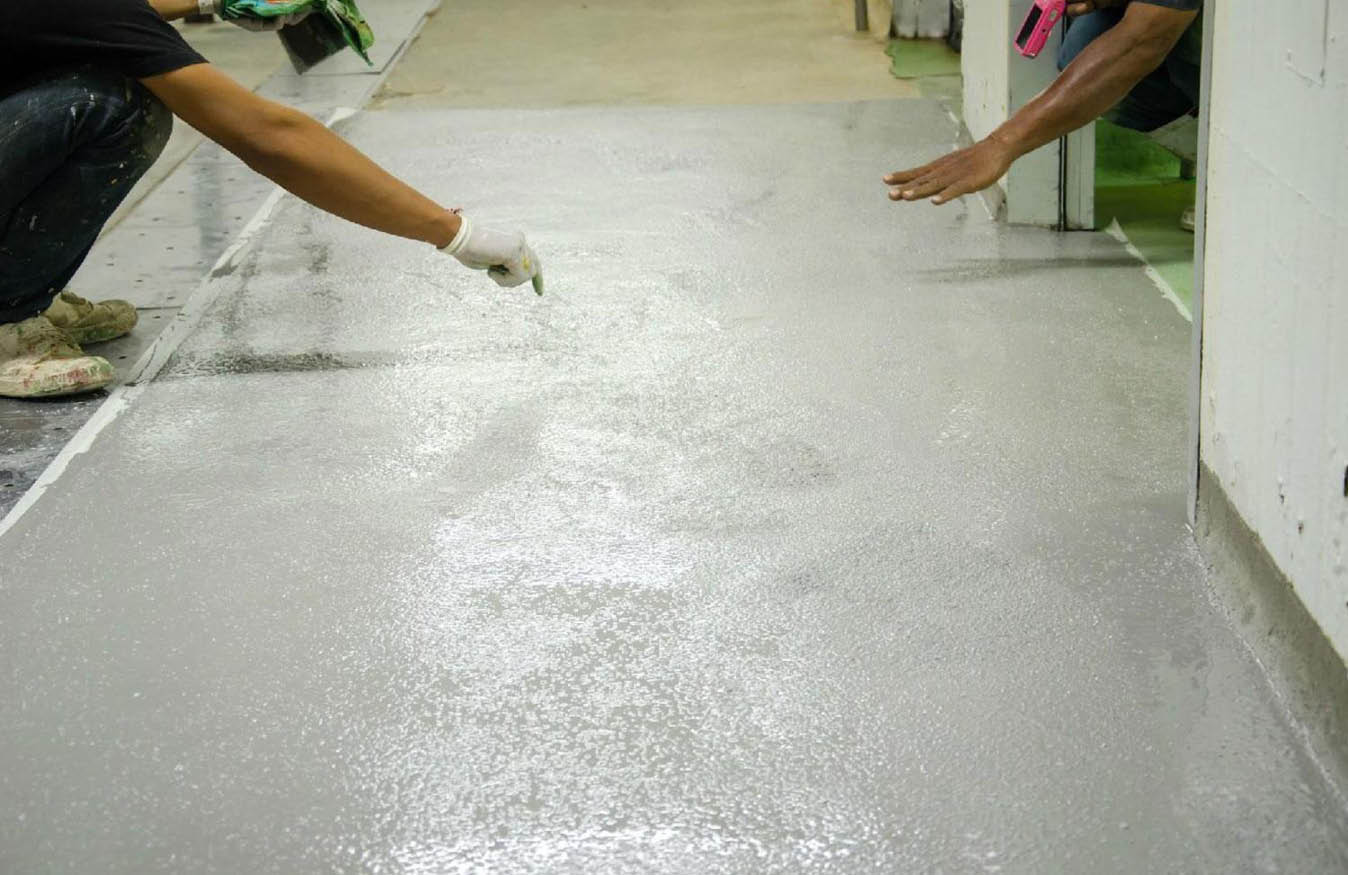Concrete flooring has been a popular choice for both residential and commercial properties for a long time. It is durable, cost-effective, and low maintenance, making it a practical choice for high-traffic areas. However, like any other flooring option, concrete flooring has its pros and cons. In this article, we will discuss both the advantages and disadvantages of concrete flooring to help you make an informed decision.

Pros of Concrete Flooring
- Durability: One of the biggest advantages of concrete flooring is its durability. It can withstand heavy foot traffic, spills, and even the weight of heavy machinery. Unlike other flooring options like hardwood or carpet, concrete floors are not prone to scratches, stains, or tears, making them ideal for high traffic areas like warehouses, factories, and garages.
- Cost-Effective: Concrete flooring is also cost-effective compared to other flooring options. It is relatively inexpensive to install, and its low maintenance nature reduces the overall cost of ownership. Additionally, concrete floors have a long lifespan, which means that they won’t need to be replaced as often as other flooring options.
- Low Maintenance: Another advantage of concrete flooring is that it requires very little maintenance. Unlike other flooring options that need to be vacuumed, polished, or refinished regularly, concrete floors only require occasional cleaning with a mop and a mild cleaner. This makes them ideal for people who don’t have the time or resources to maintain high-maintenance flooring.
- Versatile: Concrete flooring can be designed in a variety of styles and finishes, making it a versatile option. It can be polished to a high shine or left with a matte finish. Concrete floors can also be stained or stamped to create a unique and personalized look. This versatility makes it ideal for both residential and commercial properties.
- Energy Efficient: Concrete flooring has excellent thermal mass, which means that it can absorb and retain heat, making it an energy-efficient option. This quality makes it ideal for homes in colder climates as it can help to reduce heating costs.
Cons of Concrete Flooring
- Hardness: While concrete flooring is durable, its hardness can be a disadvantage. Standing or walking on a hard surface for extended periods can cause fatigue and joint pain. This can be particularly problematic in commercial settings where employees may have to stand for long periods.
- Coldness: As mentioned earlier, concrete flooring has excellent thermal mass, which means that it can absorb and retain heat. However, this also means that it can be cold to the touch, particularly in colder climates. This can make it uncomfortable to walk on barefoot and may require additional heating solutions to make it more comfortable.
- Susceptible to Cracking: While concrete floors are durable, they can still be susceptible to cracking. This can be caused by a variety of factors, including shifting soil, heavy loads, or freezing and thawing. While minor cracks can be easily repaired, larger cracks may require the entire slab to be replaced.
- Limited Sound Insulation: Concrete flooring does not provide good sound insulation, which means that footsteps, voices, and other noises can easily travel through it. This can be problematic in residential properties where noise pollution can be an issue.
- Installation Time: Installing concrete flooring can be a time-consuming process. The floor needs to be properly prepared, including leveling and smoothing the surface, which can take several days. Additionally, the floor needs to cure properly, which can take up to several weeks before it can be used.
Conclusion
Concrete flooring has its pros and cons, and ultimately, the decision to install it depends on your needs and preferences. If you are looking for a cost-effective, durable, and low maintenance option, concrete flooring may be the right choice for you.




[…] additional information. The Best Concrete Construction Company specializes in delivering top-notch concrete flooring solutions for residential and commercial spaces […]
[…] concrete cleaning and repair maintenance company are the company that can help you maintain the cleanliness and the […]
[…] is often straightforward, making it a perfect DIY project. Revitalize your space by incorporating concrete flooring, transforming aging homes into vibrant, contemporary living […]
[…] work. For your home project, trust experienced concrete contractors to install high-quality concrete flooring that enhances both durability and […]
[…] essential to consider their expertise in addressing issues such as cracks, as concrete is susceptible to cracking over […]
[…] abrasives are used in polishing diamond-polished concrete flooring. Diamond abrasives are made with an abrasive material that contains tiny diamonds. Using diamonds […]
[…] To begin with, the cement industry in general is very seasonal, with spring and autumn being the main times of year when work can be carried out. In fact, many of the large commercial and industrial companies do their main cement laying in spring and autumn, as these are the times when the ground is generally the lowest in temperature and is therefore most suitable for pumping chemicals and other fluids easily. Summer, on the other hand, is generally a time when the weather is warmer and more comfortable; however it is also a time when the weather can change rapidly. If you want to get the best results from your cement laying, it is therefore essential that you know the current climate at your chosen site before commencing work. Discovering the quickest expanding concrete company involves thorough research, strategic networking, and exploring market trends, particularly in the realm of concrete flooring. […]